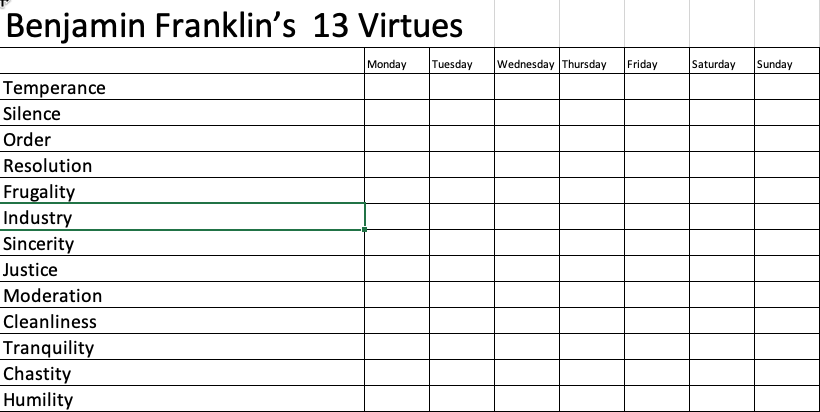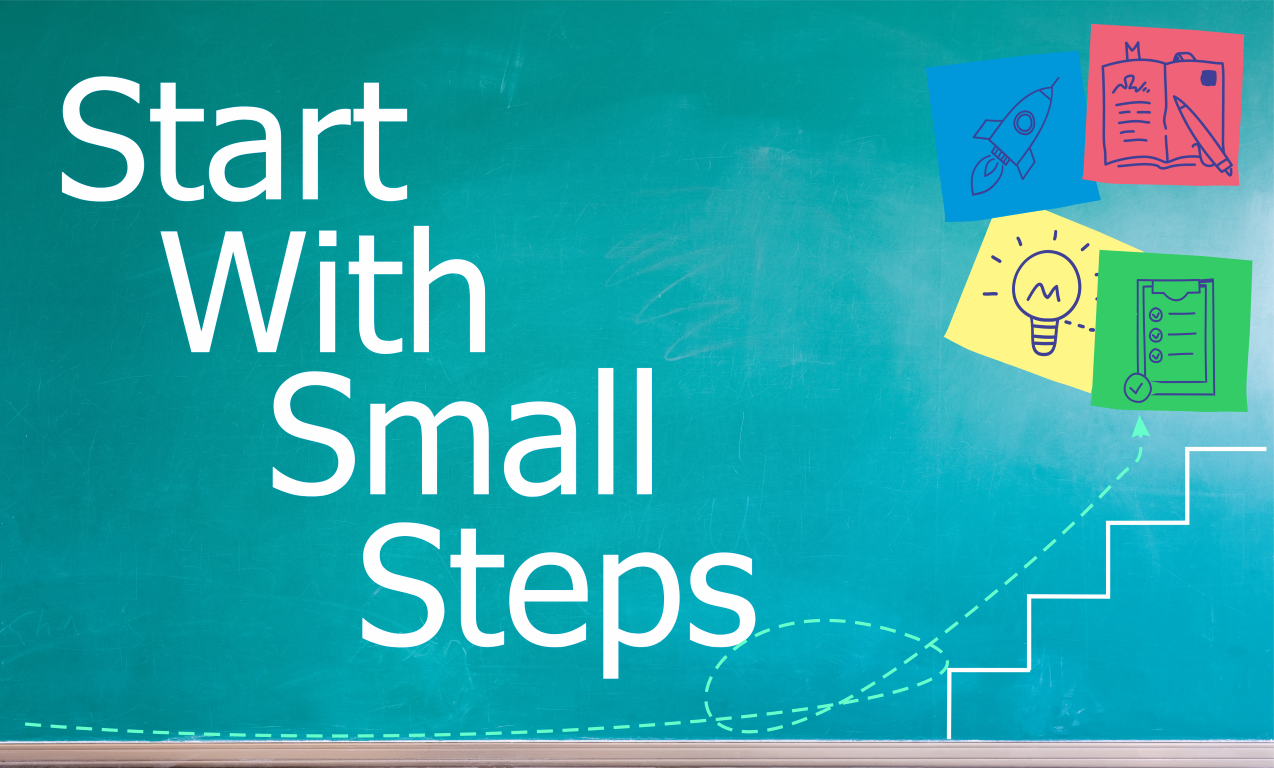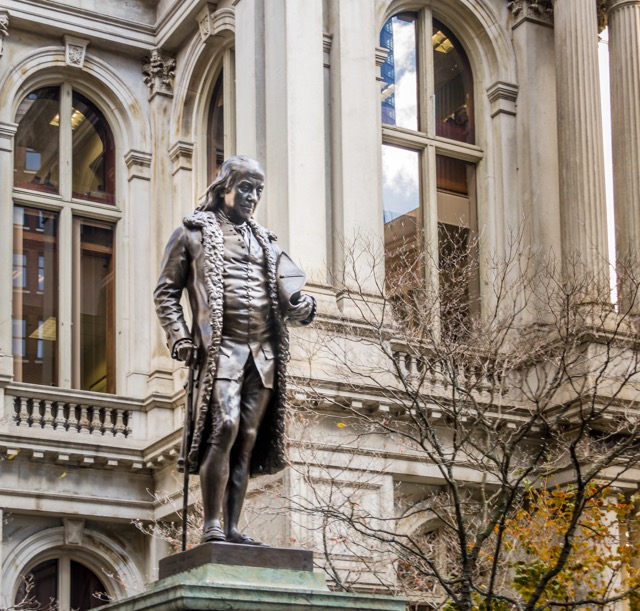Benjamin Franklin’s Book of Virtue
How He Created the System – Franklin created the system in 1876 at the age of 26. He wanted to make a trackable system. He listed the 12 virtues he felt he was struggling with the most. He asked a friend to name the 13th virtue. 13 virtues divide evenly into 52 weeks. He would work on one virtue a week and then move to the next on the list. He also ordered the virtues so they would build on each of the subsequent virtues.
A Modern Attempt – David G. Allan wrote a piece for CNN where he tried this experiment for a decade. He picked two Franklins virtues, updated the definitions, and created 11 other virtues he wanted to tackle. He gave himself firm goals and definitions to know how to accomplish them. He thought it was beneficial and great for everyone. See the link to read about his experience.
Franklin’s Virtues
- Temperance – Eat not to dullness. Drink not to elevation.
- Silence – Speak not but what may benefit others or yourself. Avoid trifling conversation.
- Order – Let all your things have their places. Let each part of your business have its time.
- Resolution – Resolve to perform what you ought. Perform without fail what you resolve.
- Frugality – Make no expense but do good to others or yourself—waste nothing.
- Industry – Lose no time; be always employed in something useful. Cut off all unnecessary actions.
- Sincerity – Use no hurtful deceit; think innocently and justly and, if you speak, speak accordingly.
- Justice – Wrong none by doing injuries or omitting the benefits that are your duty.
- Moderation – Avoid extremes; forbear resenting injuries so much as you think they deserve.
- Cleanliness – Tolerate no uncleanliness in body, in clothes, or habitation.
- Tranquility – Be not disturbed at trifles or at accidents common or unavoidable.
- Chastity – Rarely use venery but for health or offspring, never to dullness, weakness, or the injury of your own or another’s peace or reputation.
- Imitate Jesus and Socrates
How Did Franklin Do? He said that he didn’t entirely succeed, but he did pretty well, making him a better person and happier.
How Do You Do Hard Things? He knew that perfection was not attainable, but he would get pretty good by constantly working on it over the years and measuring his progress. He would improve on these virtues and knew that he would find that to be good enough.
How To Measure Progress – Franklin tracked his day and his habits. He had a diary he used to complete the process. See the grid below:


Challenge
- What virtues could you improve in that would make you a better person? Things that maybe have nagged on you your whole life, or, again, if someone else has an opinion about what virtues you should work on. Something that perhaps is nagging other people about you and making a challenging list: write them down and create a grid to track how well you tackled your 13 virtues on any given day.
Links
- https://www.cnn.com/2018/03/01/health/13-virtues-wisdom-project/index.html
- https://www.youtube.com/watch?v=OegmiOQNxVo

